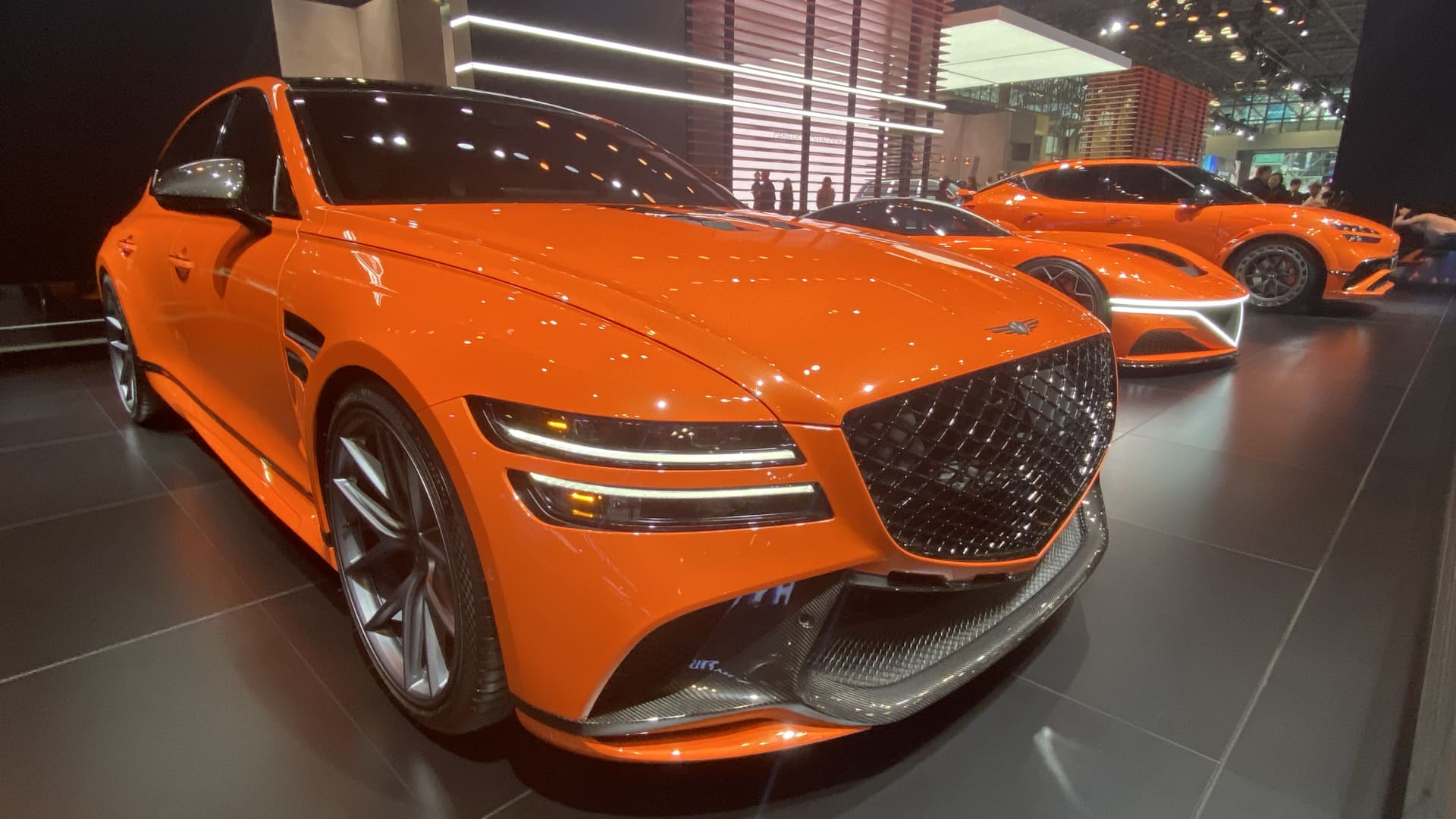NEW YORK — When Hyundai Motor launched its Genesis luxury brand domestically in 2016, many were skeptical the South Korean automaker — recognized mainly for budget vehicles at the time — knew what it was doing.
Among the skeptics were auto industry veterans Randy Parker and Claudia Marquez. Both were working for Nissan’s luxury Infiniti brand at the time and they’ve since made the leap over to Hyundai Group, with Parker leading the Hyundai brand in the U.S.
“We both were looking at it like, ‘Oh, my God, how are these guys going to be able to make it?’ I mean, nothing against. It’s just complicated. A new brand in such a competitive set,” Marquez, who now leads Genesis in North America, told CNBC last week at the New York International Auto Show.
Not only has Genesis made it, the brand has thrived to become a dark horse in the U.S. luxury market with unique styling, unexpected comfort and well-ranked quality. It’s done so with both gas-powered and electric vehicles.
The brand has overtaken the decades-old Infiniti brand in annual U.S. sales since 2022. Executives expect to continue annual double-digit growth over the next five years, according to Marquez, who was named Genesis’ North American chief operating officer in October 2021.
“We have to outpace, by far, the luxury market,” she said. “It’s going to continue being strong. It has to be a marathon, not a sprint.”
Genesis started as a vehicle in Hyundai’s lineup but the company announced in late 2015 that it would become its own brand. Since then, its U.S. sales have grown from fewer than 7,000 vehicles in 2016 to more than 69,000 last year.
Growing awareness
Along those lines, Marquez and José Muñoz, Hyundai president and global chief operating officer, noted that while robust Genesis’ growth is expected, it will be at a restricted pace to retain the residual values and pricing of the vehicles.
Muñoz said expectations for the brand are “still high” but its volume ambitions for the U.S. are more in line with its rivals such as Porsche than that of Lexus and Mercedes-Benz, which sell hundreds of thousands of vehicles annually.
“We still have a long ways to go, but this is not a mass brand. So, we don’t have a huge volume aspirations, but there’s still a significant way to go,” Muñoz, who also serves as CEO of Hyundai Motor and Genesis Motor North America, said during a separate interview at the show.
The brand’s closest competitors based on 2023 sales were Land Rover (71,727 units), Porsche (75,415 units), Lincoln (81,818) and Volvo (128,350). Genesis sales last year increased about 23% over the prior year to 69,175 vehicles.
One of Genesis’ greatest challenges remains awareness, Marquez said. Stephanie Brinley, principal automotive analyst at S&P Global Mobility, agreed with that perception.
“It’s an upstart that’s gained credibility; now it has to gain a wider audience,” Brinley said. “It is respected at this point. The problem is, just not quite enough people know about it yet. … That’s the space it occupies right now.”
Performance models
For the short term, Genesis is looking to grow awareness and sales with new “Magma” performance models. It intends to offer a performance variant for each production vehicle, the company said last week in conjunction with the auto show in New York.
The brand also may expand its lineup with a three-row SUV. Genesis revealed a large, all-electric concept SUV last week. Marquez declined to discuss potential production plans but said to expect such a vehicle “sooner rather than later.”
Genesis currently offers three sedans (G70, G80, G90) and three SUVs (GV60, GV70, GV80). The G80, GV60 and GV70 are also available as all-electric vehicles. Genesis’ 2024 starting prices range from about $41,500 for the G70 to more than $89,000 for the G90.
Worldwide, the Genesis G80 is the best-selling model in the brand’s vehicle lineup since its introduction in 2016, with 390,738 units sold across the global market, including electrified G80 models.
The brand is likely to get a boost in local manufacturing with a new $7.6 billion factory expected to begin production later this year in Georgia.
Muñoz said Genesis will be a “key focus of the plant,” which also will produce Hyundai and Kia vehicles. The brand currently assembles the GV70 gas and electric SUVs at a plant in Alabama, while the other models are imported from South Korea.
“The products are very strong. They’re very welcomed by the consumer as we have focused on [the U.S.],” Muñoz said. “This is the most important market for a Genesis without a doubt.”
